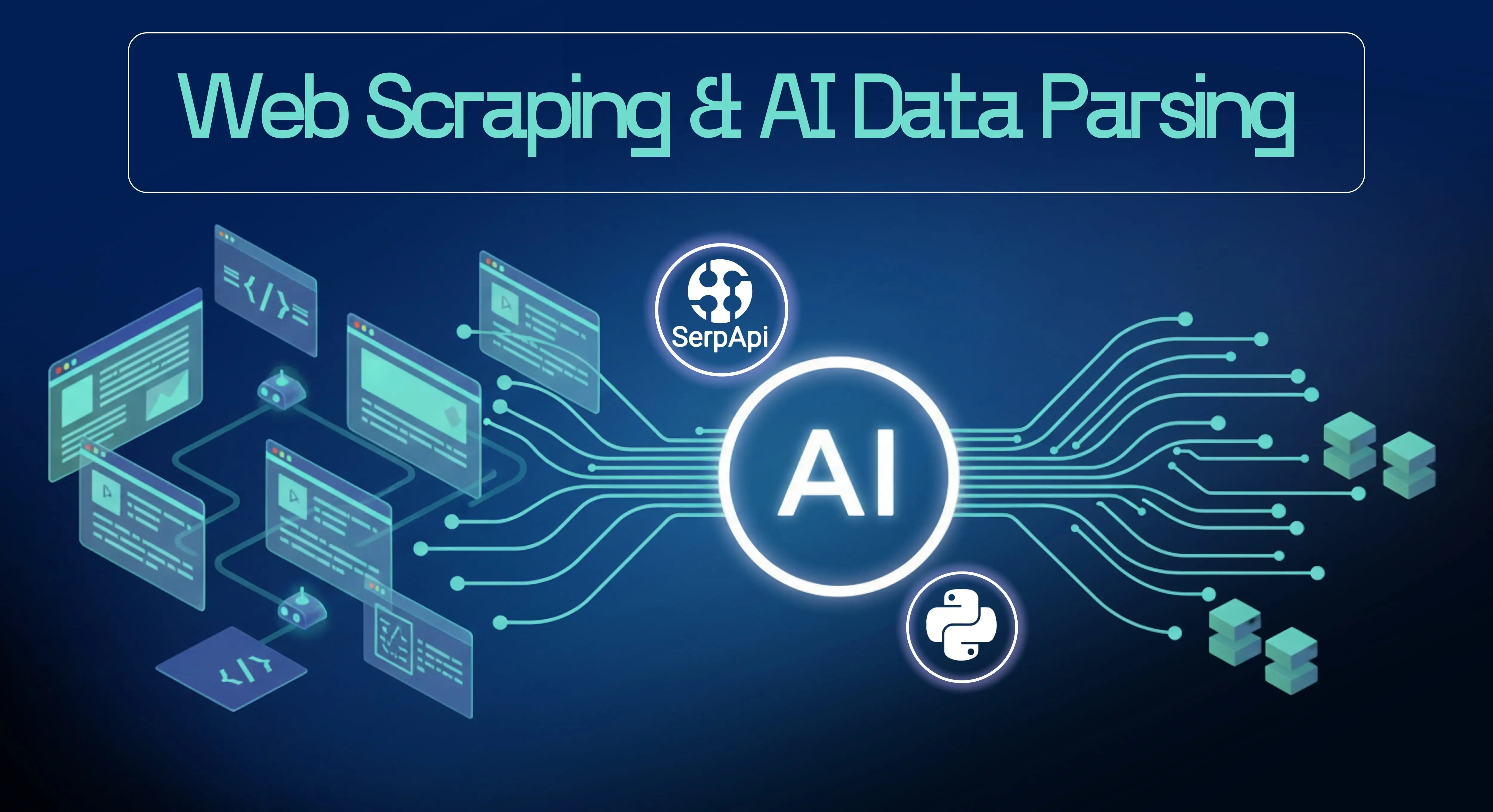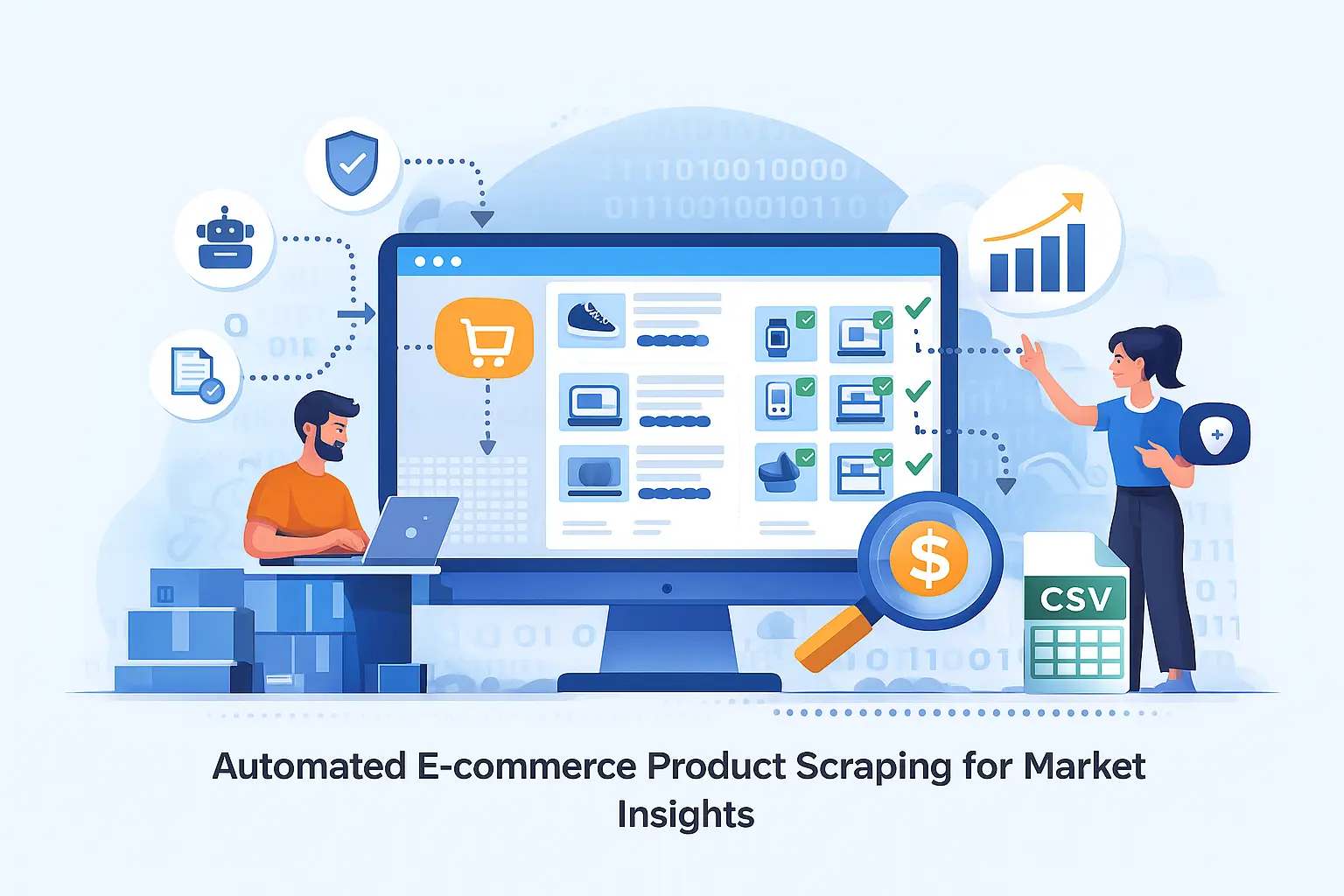Introduction
Moderating and analyzing large volumes of data can be challenging, especially when information is spread across multiple sources. This project focused on developing an automated web scraping system combined with AI-driven data structuring to simplify data extraction, improve accuracy, and enhance decision-making. By leveraging web scraping with Python, SerpApi, and Selenium, alongside Gemini 1.5 Pro AI, the solution provided a structured approach to gathering and processing part number data while minimizing manual effort.
Client Background
The client needed a streamlined solution to collect and process part number data from multiple websites. Their existing method relied on manual data entry, which was slow, prone to errors, and increasingly difficult to manage as the volume of information grew. Extracting, analyzing, and organizing this data required significant time and effort, limiting their ability to make timely decisions. To address these challenges, they required automated web scraping tools capable of mechanizing these tasks while ensuring accuracy and adaptability.

Challenges & Goals
The following were some of the challenges and goals of the project:
Challenges
Collecting part number data manually was time-consuming and required a considerable amount of effort. This method not only slowed down the process but also led to inconsistencies, making it difficult to maintain accuracy.
Many websites posed additional challenges, such as requiring logins, incorporating captchas, and using dynamically loaded content, all of which complicated data extraction. These barriers made it difficult to gather information efficiently and required constant manual adjustments.
Even when data was successfully retrieved, it often lacked a structured format. This made it challenging to compare and analyze, further slowing down decision-making processes. As the need for data grew, the limitations of manual collection became even more apparent, highlighting the necessity for a more effective and scalable approach.
Goals
The first goal of the project was to create a system for web scraping using Selenium, SerpApi, and Python to collect part number data from multiple websites. By automating this process, the aim was to reduce reliance on manual entry and improve the reliability of data collection.
Another key objective was to apply AI-based processing to analyze and organize the extracted data. The system needed to identify alternate and equivalent part numbers, allowing for a more comprehensive understanding of available components and their relationships.
Ensuring data retrieval remained accurate and consistent despite website restrictions was also a priority. The question was: How to bypass captchas in web scraping? The solution also had to navigate logins and dynamically loaded content without disrupting the flow of information.
Finally, the extracted data needed to be presented in structured formats, such as CSV and Google Sheets. This would allow for seamless integration into the client’s existing workflows, making the information easily accessible and actionable.

Implementation & Results
A custom web scraping workflow was built using SerpApi, Selenium, and Python. The system was designed to handle various website structures, extract part numbers accurately, and minimize errors. With this approach, data retrieval became faster and required less manual input.
AI-Powered Data Structuring
Once the data was collected, Gemini 1.5 Pro AI processed and structured the information. This AI-powered data extraction:
- Identified alternate and equivalent part numbers, ensuring a broader scope of data.
- Formatted the extracted information into structured files for better usability.
- Generated reports in CSV and Google Sheets, making data more accessible for analysis.
Reliable System for Long-Term Use
To maintain accuracy and consistency, the system was built to:
- Adjust to changing website structures, reducing the need for constant manual updates.
- Bypass obstacles like logins, captchas, and dynamic content without compromising reliability.
- Require minimal manual intervention while being adaptable to increasing data demands.

Business Impact
By implementing this system, the client saw significant improvements in their workflow:
- Reduced manual data collection, lowering errors and saving valuable time.
- Faster data retrieval, enabling quicker responses to business needs.
- Structured insights made data easier to analyze, improving decision-making.
- A system built to handle growing data needs, ensuring continued usability.
Key Insights
- Reducing manual processes saves time and minimizes errors.
- AI-powered structuring makes data more practical for analysis.
- Addressing website restrictions ensures reliable data extraction over time.
- Systems that adapt to growing data requirements remain useful in the long run.

Conclusion
This project improved how the client collects and processes data, replacing manual methods with an automated system that organizes and structures information effectively. By combining web scraping with AI, Relu Consultancy provided a reliable solution tailored to the client’s needs. The result was a more accessible, accurate, and manageable data collection process, allowing for better decision-making and reduced workload.







.svg)
.svg)
















